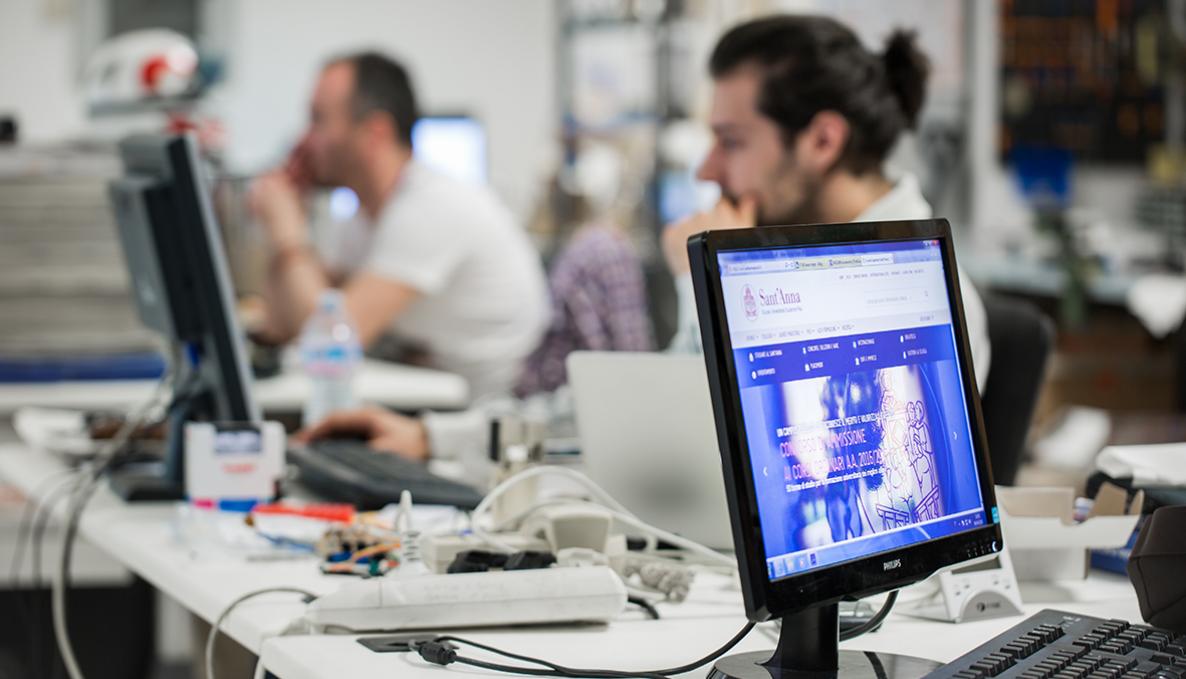THE EUROPEAN PROJECT EINST4INE FUNDS PHD POSITIONS UNDER THE MARIE SKŁODOWSKA-CURIE GRANT TO TRAIN NEW LEADERS IN THE AREAS OF OPEN INNOVATION, INDUSTRY 4.0 AND DIGITAL TRANSFORMATION

A new research and innovation project funded by the European Union’s Horizon 2020 Marie Skłodowska-Curie grant scheme (No 956745) is on the search for budding doctoral researchers ready to embrace the fundamental challenges of future industrial systems. EINST4INE’s doctoral researchers will become future leaders, experts, and strategists of business and digital transformation – equipped with the hybrid tech-digital behavioural skills and cutting-edge knowledge to enable companies to benefit from digital innovation.
EINST4INE (the European Training Network for InduStry Digital Transformation across Innovation Ecosystems) is a €4M research initiative addressing some of the gaps and challenges faced by industries adapting to the digital revolution. EINST4INE’s recruitment campaign (deadline 25/04) see the appointment of 15 high-performing, early-stage researchers ready to tackle the real-world challenges faced by industry by expanding their expertise in innovation and technology management. With world-leading expertise in the areas of Open Innovation, Industry 4.0, digital transformation, and innovation ecosystems, the EINST4INE team will develop new methods, skills, concepts and roadmaps to guide businesses towards digital transformation.
Two positions will be managed by Scuola Superiore Sant’Anna, in the framework of Phd in Biorobotics and in PhD in Management - Innovation, Sustainability and Healthcare.
INFO ABOUT PHD POSITIONS AT SCUOLA SUPERIORE SANT’ANNA
PROJECT 2 - Assessment of human-machine interfaces of social and collaborative robots
The main supervisors are Arianna Menciassi and Calogero Oddo (The BioRobotics Insitute). Robots are nowadays integrating capabilities which were not available in the recent past. The major change is the ability to have the robot share the workspace and tasks with humans, allowing to cooperate and act in society. A major subsystem of a social/collaborative robot is the human-machine interface, which may be grounded on different sensory modalities to exchange information. State of the art interfaces typically are speechbased, touch-based, or vision-based or combinations of these to allow interpreting, imitating or complementing the gestures of the user. The research will explore the interaction and complementarities between automation (including social/collaborative robots) and human machine cooperation. This ESR project will explore and pilot novel approaches to digitize human work and their effects on individual and organizational performance.
PROJECT 3 - Human models for collaborative robots
The main supervisors are Andrea Piccaluga, Alberto Di Min, Cristina Marullo and Valentina Cucino. The project will be dedicated to understanding the interaction models of collaborative robots in organizations. The main objectives will be: 1) to examine the effect of the introduction of social and collaborative robots on individual workers and, more in general, the main opportunities and challenges at the organizational level; 2) to explore how technology acceptance will influence usage intention and usage behaviour and, more in general, on organizational performance ; 3) to identify the barriers to adoption of the use of technology; 4) to identify the facilitators that help the adoption of new technology and the introduction of robots in organizational environments.



